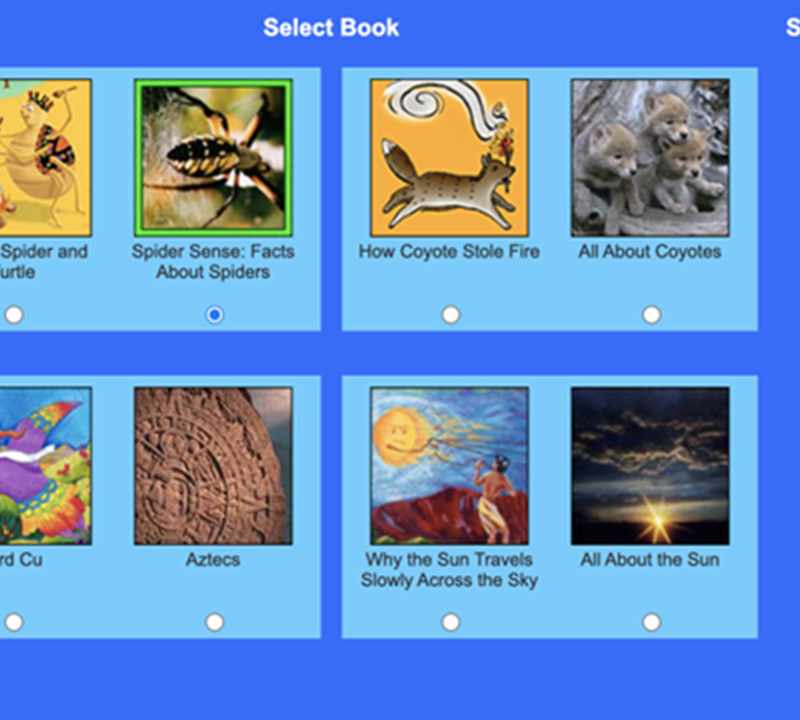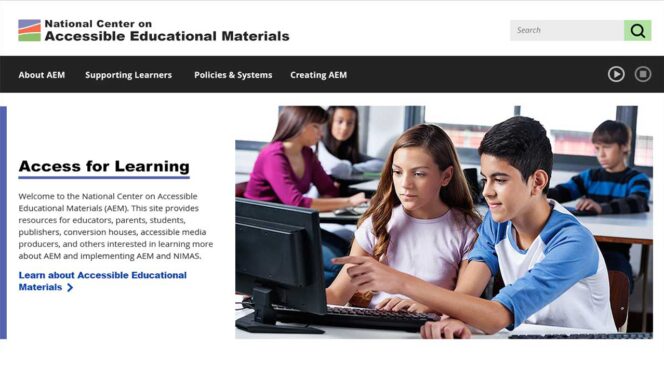The CAST Folktales line of work supported literacy development for students, with a special focus on encouraging English Language Learners (ELL) to leverage their home language to build reading comprehension skills in English.
With CAST Folktales, students chose from a list of texts within a scaffolded environment that incorporated Universal Design for Learning (UDL) supports, as well as text-to-speech, Spanish-to-English translations, and glossary features. Users could also select from five levels of reading comprehension question prompts, tips, and hints that progressively decrease as learners advance literacy skills. Students demonstrated their comprehension by taking quizzes that measured their depth of understanding of key vocabulary words, and by answering prompts that ask them to summarize, visualize, question, clarify, predict, feel, and reflect on the readings.
We love building on previous work! All About Coyotes is available in Clusive®, our flexible, accessible digital reader. This title was also available in UDL Editions along with How Coyote Stole Fire.
The CAST Folktales literacy-building environment paired four folktales with science texts:
- How Coyote Stole Fire | All About Coyotes
- Why the Sun Moves Slowly Across the Sky | All About the Sun
- Hungry Spider and Turtle | Spider Facts
- Bird Cu | Aztec Facts
Additionally, Folktales helped learners develop key vocabulary by identifying five words for each text (typically Spanish-English cognates) and creating activities around each word. Level-one activities presented learners with a definition, image, and audio for each word, while more advanced activities helped learners build deeper knowledge with word webs and inferential understanding of word meaning. To demonstrate comprehension, students could respond to prompts via text or audio.
CAST Folktales projects were based on the results of three CAST research projects:
- The Engaging the Text Project (1998-2001)
- The Strategic Learning Editions Project (2001-2004)
- The ICON Project: Improving Comprehension OnLine (2005-2008)
Funding for CAST Folktales included the William and Flora Hewlett Foundation, Charles and Helen Schwab Foundation, Verizon Foundation, U.S. Department of Education, Office of Special Education Programs, and U.S. Department of Education, Institute of Educational Sciences.
Articles produced from the work on the CAST Folktales project include:
- Proctor, C. P., Dalton, B., & Grisham, D. L. (2007). Scaffolding English Language Learners and Struggling Readers in a Universal Literacy Environment with Embedded Strategy Instruction and Vocabulary Support. Journal of Literacy Research, 39(1), 71–93. https://doi.org/10.1080/10862960709336758
- Dalton, B., Proctor, C. P., Uccelli, P., Mo, E., & Snow, C. E. (2011). Designing for Diversity: The Role of Reading Strategies and Interactive Vocabulary in a Digital Reading Environment for Fifth-Grade Monolingual English and Bilingual Students. Journal of Literacy Research, 43(1), 68–100. https://doi.org/10.1177/1086296X10397872
- Proctor, C. P., Dalton, B., Uccelli, P., Biancarosa, G., Mo, E., Snow, C., Neugebauer, S., (2011). Improving Comprehension Online: Effects of Deep Vocabulary Instruction with Bilingual and Monolingual Fifth Graders, Reading and Writing 24 (5), 517-544
- Dalton, B., Robinson, K., Lovvorn, J., Smith, B., Alvey, T., Mo, E., Uccelli, P., Proctor, C. P., (2015), Fifth-Grade Students’ Digital Retellings and the Common Core: Modal Use and Design Intentionality, The Elementary School Journal 115 (4), 548-569.

